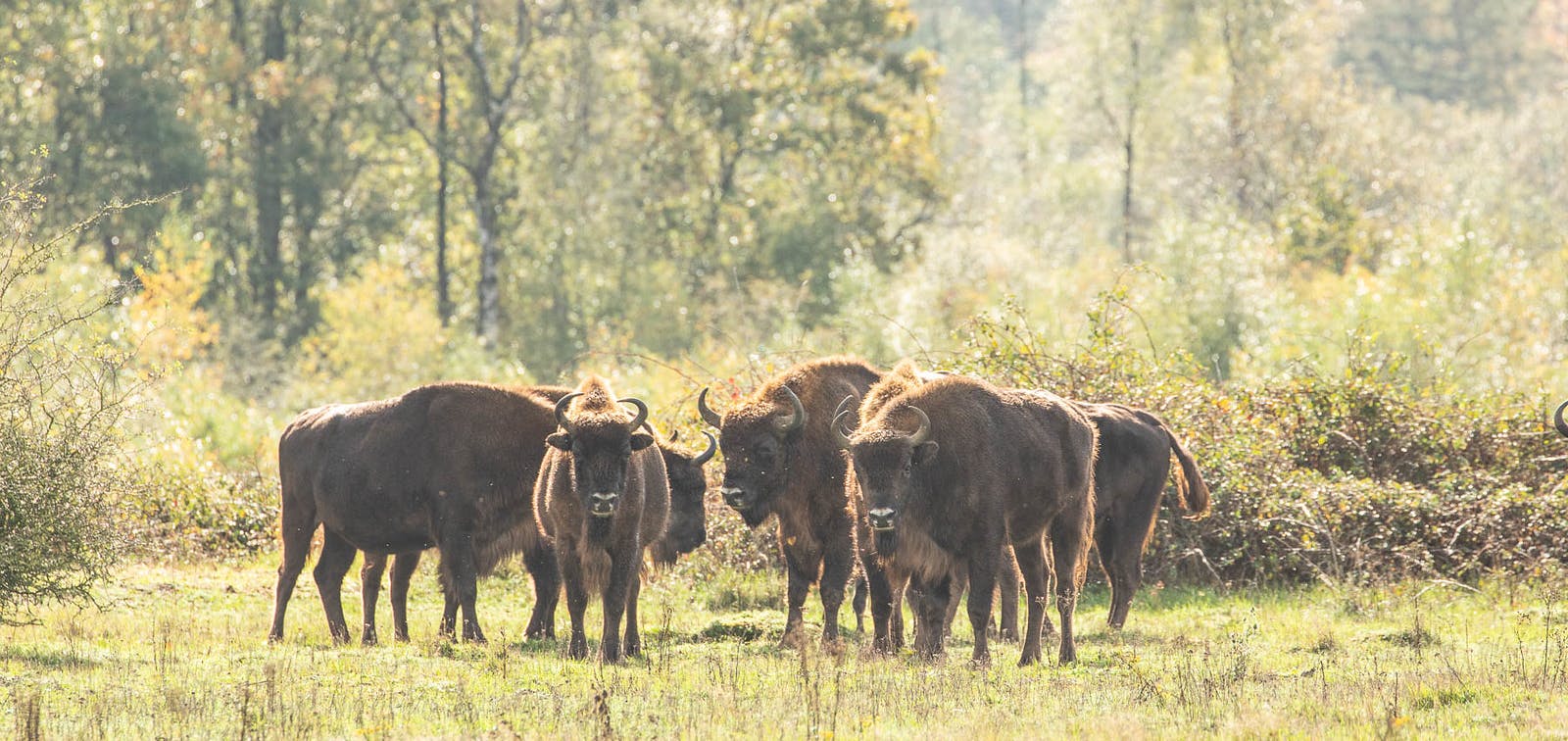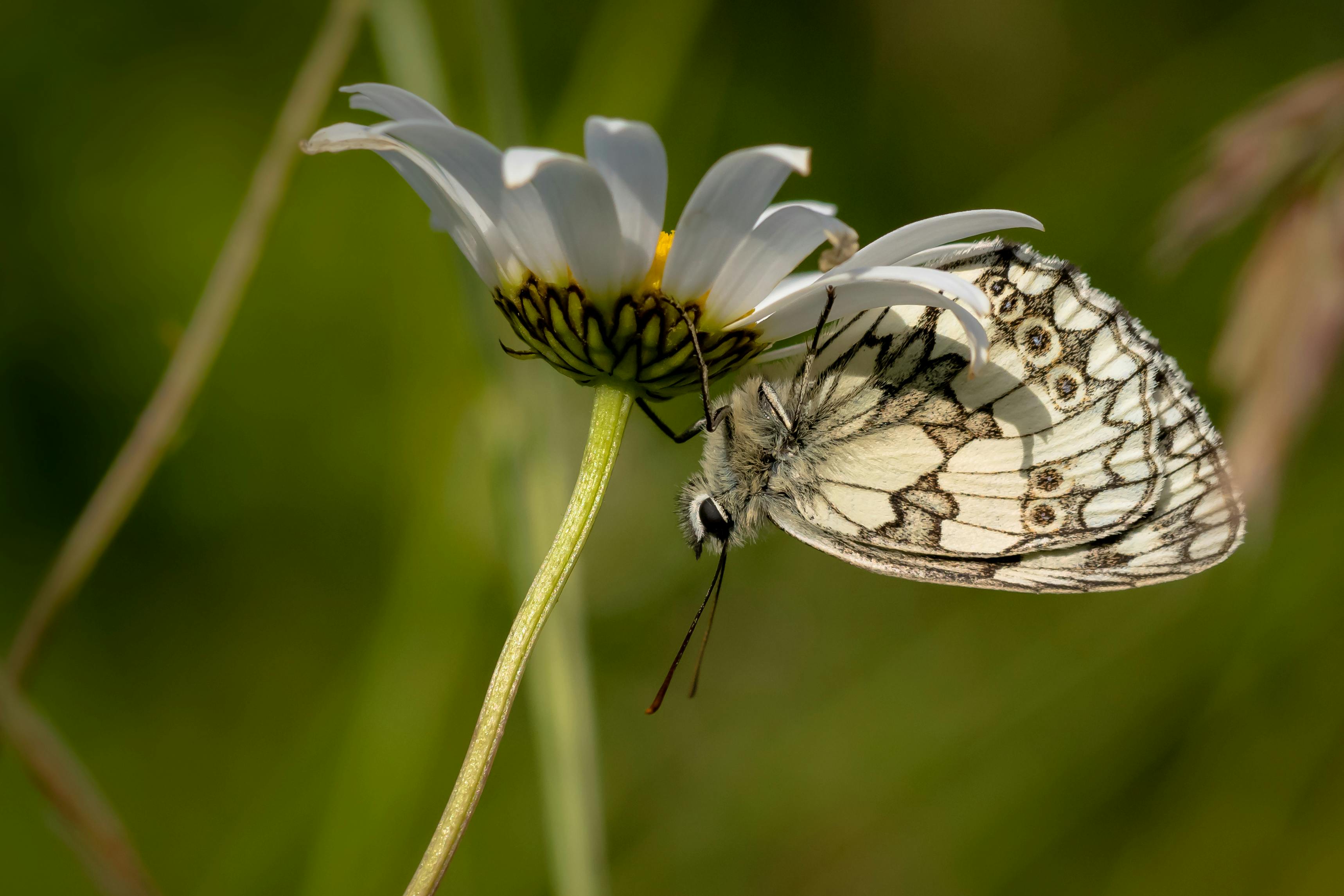
We must get wilder about carbon

Paul Hadaway Director of Conservation
Climate collapse and environmental collapse are two critical and existential crises that the world is facing. Developing at a frightening rate, neither is being addressed with the speed and importance needed, despite the declaration of a climate and ecological crisis by the UK Parliament and the majority of local authorities.
Climate collapse and environmental collapse are two critical and existential crises that the world is facing. Developing at a frightening rate, neither is being addressed with the speed and importance needed, despite the declaration of a climate and ecological crisis by the UK Parliament and the majority of local authorities.
That crisis declaration recognised what many of us already understood, the links between the nature and climate crises are more inherent than ever before and that there is a way to address both at the same time. Nature-based solutions are the answer and wilding plays a key role.
But we need investment in this area to achieve the right results. Along with widespread decarbonisation of industrial economies, investment in nature-based solutions can help us stop the warming of our planet and the loss of biodiversity and it must start locally.
This year, as the UK hosts the UN Biodiversity COP15 in May, the UN Climate Change Conference COP26 in November, and the UK takes on leadership of the G7, all eyes will be on our own action to tackle climate change. Emerging policies on Nature Recovery Networks and UK climate reduction strategies mean this is a critical moment to bring forward our Wilder Carbon initiative as part of the national solution to some of the most pressing issues of our time.
Kent Wildlife Trust, along with other Wildlife Trusts, a coalition of experts in academia and business and a trusted organisation are working on the Wilder Carbon programme for businesses to become part of the solution to climate change. Making more space for nature to become abundant once again will give our struggling wildlife the chance to recover and restore beautiful wild places - places that act as carbon stores and subsequently help tackle the climate crisis. Our ambitions to restore natural processes at scale through wilding of land are one of the key delivery routes for this work.
Our goal for Wilder Carbon is ambitious but vital; to become recognised as the standard for the delivery of multi-beneficial nature restoration projects in the UK. Wilder Carbon could change the view of ‘green investments’ and raise income to restore nature at a previously impossible scale in a secure way.
The Prime Minister has said that as co-host of COP26 and president of this year’s G7, we are going to make sure the natural world stays right at the top of the global agenda. And that we will be leading by example here at home as we build back greener from the pandemic through his ten-point plan. Wilder Carbon is our response to make the UK wilder for people and for wildlife locking up carbon for future generations. This is the real green recovery we need.
One of the primary ways that the UK, among the most nature-depleted countries on earth, is trying to tackle climate change is through carbon pricing. Carbon pricing penalises emissions from burning fossil fuels but along with this, we need to invest in actively restoring biodiversity. Wilding provides decarbonisation and its potential has so far been largely overlooked. Wilding natural habitats can facilitate the reduction of about a third of the greenhouse gas needed by 2030. We need both to be implemented on a large scale to meet our carbon targets.
Protecting our natural environment is point nine on the plan but there is significantly more investment needed in this area. Nature-based solutions have only attracted 2.5% of the funding for halting emissions.
We need the government to support investment in nature-based solutions, an urgent programme of research, funding and political commitment and we also need businesses, local planning authorities and other public bodies to take accountability and invest in local wilding projects that will support their own carbon reduction strategies and begin to reverse the global loss of species.
We must therefore get wilder about carbon, wilding our landscape to deliver biodiverse and resilient landscapes across the UK as a major nature-based solution and although carbon offsetting through tree planting and forest management is well-established, there are many other natural habitats which, if restored, can both capture carbon and provide even greater rewards.
As Wildlife Trusts, we are perfectly placed to help organisations do just this as part of their carbon reduction journey. Businesses will be able to invest in projects like Wilder Blean which is a nature-based solution to the current decline of nature in the UK and a model for others to follow. Wilder Blean aims to increase the abundance of wildlife in the woodland by introducing bison, a missing keystone species that can naturally manage woodlands, earning it the name ‘ecosystem engineer.’ This in turn creates a more dynamic mix of habitats, sequestering carbon at different rates over long periods of time with low management inputs.
Other reintroduction projects include bringing back beavers whose activities will restore the valuable wetland habitats which have been missing since they were lost, and thereby boost biodiversity and reduce flood risks. On the Kent Wildlife Trust reserve at Ham Fen where beavers were returned 20 years ago, we have seen both an incredible re-wetting and re-naturalising of the site at the same time the restored peat layer has locked up an estimated 62,575 tonnes of CO2e.
By protecting and restoring woodland, peatland, salt marshes, natural seabeds and other crucial ecosystems, large amounts of carbon can be removed from the air and stored. At the same time, the protection and restoration of these ecosystems can help to reduce the risk of a sixth great extinction, while enhancing local people’s resilience against climate issues.
Throughout the development of Wilder Carbon, Kent Wildlife Trust has worked to establish a
group of experts from both within and outside of the wider movement. We believe this joined-up approach is what sets Wilder Carbon apart and will be crucial as it evolves within a rapidly changing political context through 2021.
We don’t have the luxury of time to reverse the loss of nature. Please support us in making Wilder Carbon a key natural climate solution in the UK by talking to any business owners or decision-makers about this initiative.
To get in touch or for more info visit: www.wildercarbon.com
 © Barry Cook
© Barry Cook